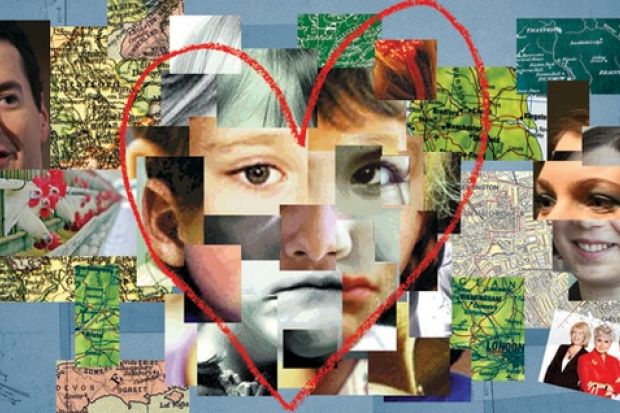The times they may be a-changin'. ITV1 seems to have become aware that there is such a thing as a society. Its sole concession to current affairs, Tonight, stepped out of the comfort zone of celebrity interviews to investigate, over three nights, the lives of children in modern Britain (Tuesday 4, Wednesday 5 and Thursday 6 January, 7.30pm). World in Action it was not, but at least it showed that the spirit of documentary was not quite dead (although, like the state of childhood, it has declined alarmingly).
Once upon a time, ITV could boast not just the award-winning World in Action, but also This Week, Weekend World, First Tuesday, The Big Story and The Cook Report. Children's television has suffered a similar cull and now barely exists as a separate genre. This lack of provision is symptomatic of a nation that was ranked 24th out of 29 countries in a table of young people's well-being. It's just not good enough. But the coalition government is pulling out all the stops to ensure that, next time, we come bottom.
The signs are already encouraging. There has, for instance, been a 70 per cent increase in children's emotional problems, but adolescent breakdowns stand at a disappointing 10 per cent. More effort needed there. And while we are on the subject of work, George Osborne will be delighted to hear that young carers save the state and local authorities millions of pounds a year.
Victoria ministers to her mother, who was left blind and severely disabled after an operation to remove a tumour. "I am 12," she said, "but I don't feel 12. I feel like I'm 28." Gail, her mother, confessed that she felt guilty and often she wished she wasn't around so that her daughter could "have her life back". Victoria will not enjoy seeing her mother say that.
Stacey got the chance to put the plight of carers to Sarah Teather, minister of state for children and families. Aware that she was being scrutinised by a mass audience, Ms Teather did her best to appear concerned. Stacey was not convinced. Who can blame her? The MP was one of many Liberal Democrats who said they would vote against any rise in tuition fees and then promptly changed their minds once they were in power.
No sooner had Ms Teather got rid of Stacey than there was another knock on her door. This time it was a delegation complaining that children had too many tests. You almost felt sorry for the minister, who seemed to be under as much pressure as the young people themselves. That would certainly explain the way she could utter contradictory propositions as if both were equally true. But then, she is a politician.
One wonders how a Blake or a Dickens would protest against the treatment of children today. They are not sent down mines or stuffed up chimneys, but they are torn in different directions. Professor Peter Fonagy summed up the depressing situation in which kids find themselves. We expect them to perform, he said, but we take away their capacity to perform. Dr Tim Gill translated this insight into a striking metaphor. Children are "not free-ranged, they are battery-reared". Parents often feel helpless because they have to work long hours, at the end of which, said a harassed-looking mother, "I still don't have any money in the bank."
It's not just children who can't cope with the modern world, neither can the grown-ups. When they're in trouble, they turn to Auntie's Angels: Jennie Bond, Gloria Hunniford and Angela Rippon, the presenters of Rip Off Britain (BBC One, Wednesday 5 January, 7.30pm). Such programmes show how wrong Marx was in his predictions about the fate of capitalism. It is not man as producer who is exploited, but man as consumer. And where Marx naively believed the workers would rise up and establish a communist society, the customer simply wants his money back.
Therefore the girls went into action against postal gold firms who promise to give a fair price for your jewellery but in fact often offer 75 per cent less than it's worth. "My name is Bond, Jennie Bond," snapped one of the Angels as she spun round and delivered a high kick that sent a villain flying. His dastardly plan to melt down the nation's gold to finance his scheme of world domination was foiled by our trio of trendy pensioners. Don't mess with them.
Love, Virtually (Channel 4, Friday 7 January, 7.30pm) was a mercifully short dramatisation of journalist Lucy Robinson's blog detailing her romantic adventures on the internet. It was Bridget Jones in cyberspace. The original was much funnier. If you want the times to change don't imitate, innovate.
Register to continue
Why register?
- Registration is free and only takes a moment
- Once registered, you can read 3 articles a month
- Sign up for our newsletter
Subscribe
Or subscribe for unlimited access to:
- Unlimited access to news, views, insights & reviews
- Digital editions
- Digital access to THE’s university and college rankings analysis
Already registered or a current subscriber? Login
